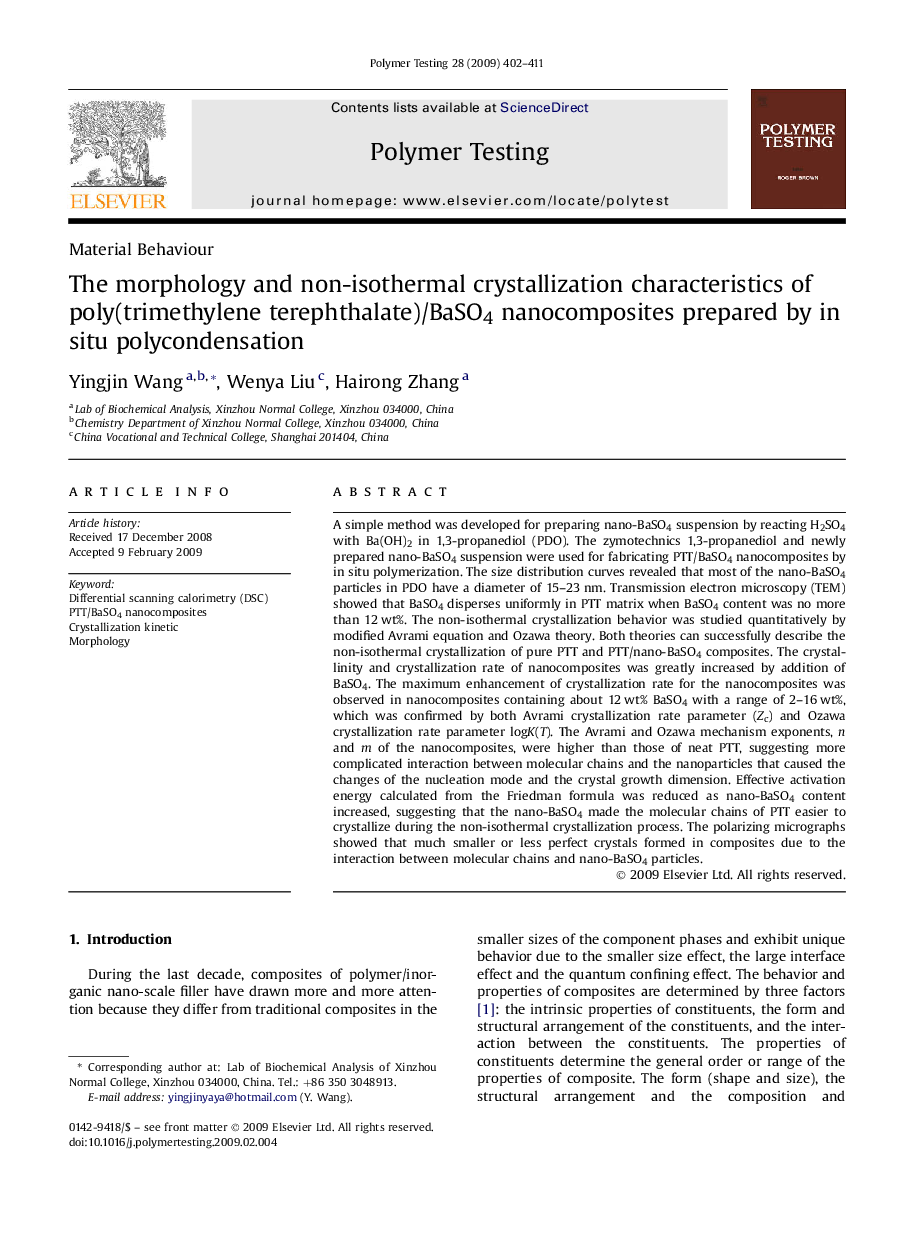| Article ID | Journal | Published Year | Pages | File Type |
|---|---|---|---|---|
| 5207333 | Polymer Testing | 2009 | 10 Pages |
A simple method was developed for preparing nano-BaSO4 suspension by reacting H2SO4 with Ba(OH)2 in 1,3-propanediol (PDO). The zymotechnics 1,3-propanediol and newly prepared nano-BaSO4 suspension were used for fabricating PTT/BaSO4 nanocomposites by in situ polymerization. The size distribution curves revealed that most of the nano-BaSO4 particles in PDO have a diameter of 15-23Â nm. Transmission electron microscopy (TEM) showed that BaSO4 disperses uniformly in PTT matrix when BaSO4 content was no more than 12Â wt%. The non-isothermal crystallization behavior was studied quantitatively by modified Avrami equation and Ozawa theory. Both theories can successfully describe the non-isothermal crystallization of pure PTT and PTT/nano-BaSO4 composites. The crystallinity and crystallization rate of nanocomposites was greatly increased by addition of BaSO4. The maximum enhancement of crystallization rate for the nanocomposites was observed in nanocomposites containing about 12Â wt% BaSO4 with a range of 2-16Â wt%, which was confirmed by both Avrami crystallization rate parameter (Zc) and Ozawa crystallization rate parameter logK(T). The Avrami and Ozawa mechanism exponents, n and m of the nanocomposites, were higher than those of neat PTT, suggesting more complicated interaction between molecular chains and the nanoparticles that caused the changes of the nucleation mode and the crystal growth dimension. Effective activation energy calculated from the Friedman formula was reduced as nano-BaSO4 content increased, suggesting that the nano-BaSO4 made the molecular chains of PTT easier to crystallize during the non-isothermal crystallization process. The polarizing micrographs showed that much smaller or less perfect crystals formed in composites due to the interaction between molecular chains and nano-BaSO4 particles.
